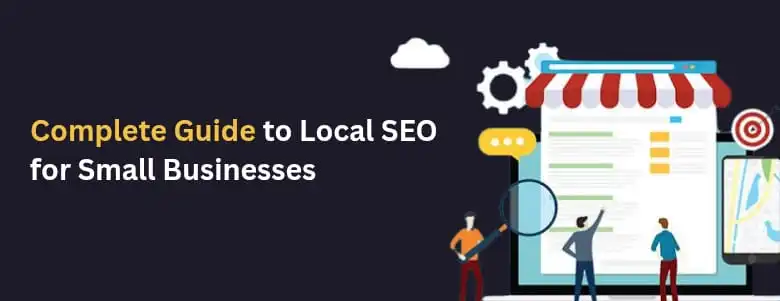With the constantly changing digital environment, search engine optimization in higher ranks has changed from filling the content with exact-match keywords. The importance has been laid on understanding what the words and phrases mean in context rather than the advancement of algorithms. It is where Latent Semantic Indexing keywords step in. They are semantically related terms that help the search engine understand how deep your content is, aligning it to user intent. What exactly are LSI keywords, and why are they a key to winning at SEO?
Think about it: when you are writing about “apple,” are you talking about the fruit, Apple Inc., or even a general term for a child? The truth is that, without more information, your search engine may rank your content incorrectly. That is where LSI keywords fill in the gaps that add clarity and relevance to make your content not only accessible to the user but also to the search engines. They expand your content by including terms that carry a broader and deeper understanding of your main topic.
Therefore, the LSI keyword is determining what page appears on the top and is lost within the crowd within the present battleground environment of the SEO battle environment. All of these factors enhance the authority development and engagement and also make the content ready and according to AI-based search complex, like RankBrain in Google. This blog delves deep into the world of LSI keywords so that you know exactly how to optimize content, stay one step ahead of the competition, and drive sustainable growth in 2025 and beyond.
Table of Contents
- 1. What Are LSI Keywords?
- 2. How LSI Keywords Affect SEO
- 3. The Importance of LSI Keywords for Content Optimization
- 4. How to Find the Right LSI Keywords
- 5. Benefits of Using LSI Keywords
- 6. Common Myths About LSI Keywords
- 7. Challenges of Implementing LSI Keywords
- 8. Pros and Cons of Using LSI Keywords
- 9. Best Practices for Incorporating LSI Keywords
- 10. Conclusion
- 11. FAQs
What Are LSI Keywords?
LSI keywords are words and phrases semantically connected to a root keyword. It helps the search engines to identify the context of your content. For example, if your keyword is “apple,” your LSI keywords will be “fruit,” “orchard,” “technology,” or “iPhone,” respectively, depending upon the context of the content.
Explanation of LSI
Latent Semantic Indexing: A mathematical technique used by search engines to determine the relationships between words and their context.
Contextual Relevance: LSI identifies words that often occur together, ensuring that content is aligned with user intent.
Wider Knowledge: It helps engines differentiate between homonyms and polysemous words to get better search results.
How LSI Keywords Affect SEO
Inculcation of LSI keywords directly affects many aspects of SEO, increasing both visibility and user experience.
Key Impacts
Improved Relevance: LSI keyword-embedded content ranks better because it closely matches search queries.
Reduced Bounce Rates: Relevant content keeps users engaged longer.
Improved Crawling: Search engines can better understand the context, improving indexing accuracy.
The Importance of LSI Keywords for Content Optimization
Content optimized with LSI keywords resonates much more with search algorithms and readers, which has a positive influence on rankings.
Why LSI Matters
This better contextualizes it and ensures your content is not keyword-stuffed but meaningful and relevant.
User Intent Fulfillment: Answering complex queries helps in increasing user satisfaction.
Algorithm Adaptation: LSI-based content is more adaptable to AI-driven algorithms such as Google’s RankBrain.
How to Find the Right LSI Keywords
Finding the best Keywords for LSI is done using strategic search.
How To Identify LSI Keywords
Use Google Suggestions: Checking your AutoComplete results.
LSI Keyword Tools: LSI Graph and SEMrush are one of the famous ones.
Study Competitors’ Research: Take ideas from higher ranking material
Synonyms identification: using thesaurus As well as finding more related keywords.
Research the Search Intent : Identify all the queries searching for keywords
Benefits of LSI Keywords
Leveraging LSI keywords has a lot of benefits because it increases the quality of content and gives better rankings.
Benefits
Increased Rankings: Semantic relevance improves SERP performance.
Better User Experience: Content is more engaging and informative.
Future-Proof SEO: It works well with AI-driven search algorithms.
Diverse Traffic: Varied search intent brings in more diversified audiences.
Content Authority: Credibility is reinforced through covering broader topics.
LSI Keyword Myths
There are some myths associated with the usage of LSI keywords.
Myths Busted
- Myth: LSI is keyword stuffing.
- Reality: LSI emphasizes relevance, not repetition.
- Myth: Google only uses LSI.
- Reality: All the current search engines are dependent on the same models.
- Myth: LSI Keywords are synonyms.
- Reality: They include more general related terms and not synonyms.
Problems of Applying LSI Keywords
Although it has many benefits, the application of LSI keywords can be difficult to apply.
Common Obstacles
Keyword Overlap: Balance variety and context.
Content Overload: Too much dependence on LSI might weaken the central idea.
Tool Dependency: Too much tool usage leads to a lack of creativity.
Benefits and Drawbacks of LSI Keywords
Benefits
High Rankings: Increased search engine results.
Depth Content: Adds more depth to content.
High Relevance: Relates very well to the user’s intent.
Drawbacks
Challenging Implementation: Heavy research work
Over-Optimization: Abuses lead to penalties.
Time-Consuming: Takes too much time for good quality LSI keywords.
Best Practices for Using LSI Keywords
To benefit from LSI keywords, follow best practices.
Effective Practices
Organic Inclusion: Do not force it; maintain the flow of content.
Diverse Sources: Use multiple tools and methods for research.
Content Refreshing: Update content with fresh LSI keywords.
User-Centric Approach: Focus on user intent rather than the preference of the search engine.
Monitor Performance: Track analytics to refine strategies.
Conclusion
With the digital sphere getting more saturated by the minute, it now takes more than just surface optimization to stay at the top of search engine optimization. LSI keywords provide a finer and more effective technique for creating contents that are aptly aligned with what users and machines look for when searching. Such an understanding of the context that forms the search will be instrumental in filling gaps between human minds and machine learning algorithms.
Advantages of the usage of LSI keywords extend way beyond simple text optimization. It will further enrich your contents and depth; enhance user experience with your website; and protect against changes in search algorithms. No matter whether a seasoned marketer or a fresher in the context of SEO, using LSI keywords can also be the effort toward more successful, ranked pieces of content. However, always use it efficiently. Its overdose or incorrect usages could further result in punishments or decrease your core idea on the surface; focus more upon value-oriented content creation from users’ viewpoints along with smoothly getting the keywords involved inside.Tools, competitor analysis, and ongoing monitoring of content performance can be used to adjust your approach.
Conclusion LSI keywords are more of a strategy and a key that unlocks the possibility of achieving better rankings and establishing a connection with the target audience. You’ll rank higher, and establish authority in your niche once you use them for your potential. Continuing further, LSI keywords will lead you down the road toward SEO mastery and digital triumph.
Ready to take your SEO strategy to the next level? Let WebGi Solutions help you optimize your content with LSI keywords and boost your search rankings.
FAQs
1. What are LSI keywords?
LSI keywords are semantically related terms that help search engines understand the context of your content.
2. How do I find LSI keywords?
Use tools like LSI Graph, SEMrush, or look at Google’s autocomplete and suggested searches related to your topics.
3. Are LSI keywords synonymous to synonyms?
No, LSI keywords refer to a set of synonyms, and related terms plus contextually relevant phrases.
4. Can overuse of LSI keywords impact SEO negatively?
Yes, too much use can bring on over-optimization penalties.
5. Why are LSI keywords essential for SEO?
They improve contextual relevance, optimize the user experience, and connect content with the search intent. By using LSI keywords appropriately, you’ll have an enhanced version of SEO and will be ahead in the cutthroat digital world.
Author
-

Shweta Tiwari brings her expertise in marketing and a passion for clear, engaging communication to the world of digital content. With 5 years of experience, she excels at breaking down complex marketing strategies into easy-to-understand insights. Specializing in digital marketing trends and strategy development, Shweta helps businesses grow and adapt in today’s fast-paced digital landscape





